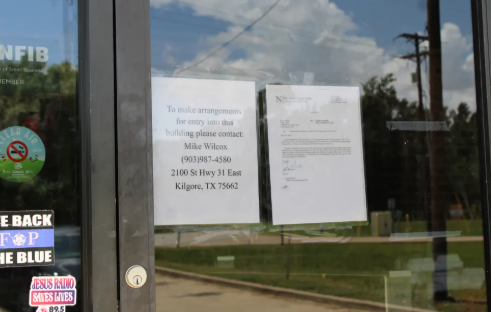Editorial: Is today’s America too divided to achieve great things?
Published 1:34 pm Monday, July 22, 2019
Ebola, measles and polio can all be prevented with vaccines that provide high degrees of immunity. Yet outbreaks of all three rumble on in different places, causing illness and death. While the technology of vaccines can always be improved, serious setbacks in fighting these diseases have origins in something else: mistrust, misinformation, violence, poverty and failing health systems. None of these are strictly biomedical factors, but all of them are making the health situation worse.
In Pakistan, courageous health-care workers have been trying to stamp out polio for years, in the face of violent opposition from militant Islamists, who see the vaccinations as a plot against Muslim children. However, there are also worrying recent signs of distrust among families who resent the repeated visits by vaccinators. Reuters reports that parents in Pakistan are getting ahold of the special markers used by health-care workers to signify a child has been vaccinated and applying the markers preemptively to their children, in some cases leading to significant numbers being unvaccinated. Up to 8% of the families in some areas had refused or avoided vaccination, the news agency reported, opening the door to continued transmission of polio. The fake finger-marking comes on top of panic among parents in Peshawar in April after false rumors spread that expired vaccination drops were being administered to children.
Trending
In Congo, health workers have been desperately battling an outbreak of Ebola, armed with an experimental vaccine that has so far proved effective. But the virus continues to spread because violence by local militias and enduring mistrust in communities has prevented vaccinators from reaching people. The World Health Organization has now elevated the crisis to an international public-health emergency.
Measles outbreaks are occurring around the world because too many people are shunning vaccination, often because of anti-vaccination messages spread on social media. A group of physicians, public-health experts and child-health advocates pointed out recently that in 2019, the United States and 34 countries in the World Health Organization European region no longer have sufficient numbers of people who have received two doses of the measles vaccine to provide the “herd immunity” necessary for community protection. The immunity usually requires about 95% coverage.
New data published this week by the WHO and UNICEF shows that global vaccination rates have flatlined at about 86% for three doses of diphtheria, tetanus and pertussis and one dose of the measles vaccine. The WHO director-general, Tedros Adhanom Ghebreyesus, wrote in the Financial Times that 20 million children worldwide — more than 1 in 10 — are not getting the vaccines they need, not because their parents are spooked by social media but because they simply lack access to the vaccines. He pointed out that, for many children, the real culprits are not social media trolls but war, unstable governments, poverty and weak health-care systems.
None of these diseases is any longer a strictly medical problem. These are challenges of war, mistrust and misinformation, and those factors must be fought just as vigorously.
— The Washington Post






